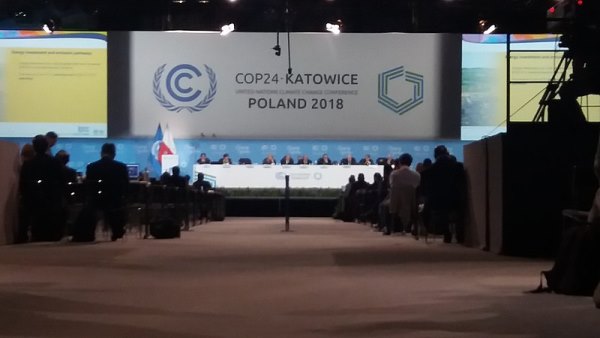India’s Approach for COP 24 receives ex post facto approval
The Union Cabinet headed by the Indian Prime Minister Shri Narendra Modi gave its ex-post facto approval to India’s negotiating stand at the 24th Conference of Parties (COP) to United Nations Framework Convention on Climate Change (UNFCCC). As per PIB, this is in continuation to the 28th November 2018 approval. The 24th COP took place in Katowice Poland between the 2nd and 15th of December 2018 where the Minister of Environment, Forest and Climate Change Dr. Harsh Vardhan led the Indian delegation.

The meeting was mainly focused on finalizing the guidelines for implementing the Paris Agreement in the post-2020 period. The approach of India was directed by the provisions and principles of the UNFCCC and the Paris Agreement, particularly by the principles of Equity and Common But Differentiated Responsibilities and Respective Capability (CBPR-RC).
Reiterating its commitment to the Paris agreement during the COP-24 India also highlighted its leadership by reuniting its promise of implementing the Agreement in a collective manner completely. Under the leadership of the Prime Minister, Government of India has taken many steps to address the climate change concerns which are reflective of India’s commitment towards climate action. Some examples include- leading the world through ISA in its search of enhanced solar energy capacity, pushing for renewable energy resulting in about 74 GW of renewable energy capacity installed, including the 24GW from solar, etc.
Sustained and sufficient means of implementation including technological support, capacity building and financial support is needed from the developed countries to support the actions of the developing countries. According to an official statement, the obligation of developed countries in providing implementation means to developing countries is operationalized by this adopted guidance which also requires detailed information from the developed countries to get clarity on the projected levels of climate finance. The official statement also mentioned that the parties have agreed to begin the work on setting up the new collective finance goals post-2020 from the base US$100 billion.
The official statement also noted that while the long term interests of the country are protected, India has expressed its reservation on the GST decision concerning the need for equity considerations in the output of the GST process. As per the Paris Agreement mandate, this is a major part of the GST process as it makes sure that the challenges, problems and the vulnerabilities of the poor and marginalized are addressed.
Image credit

